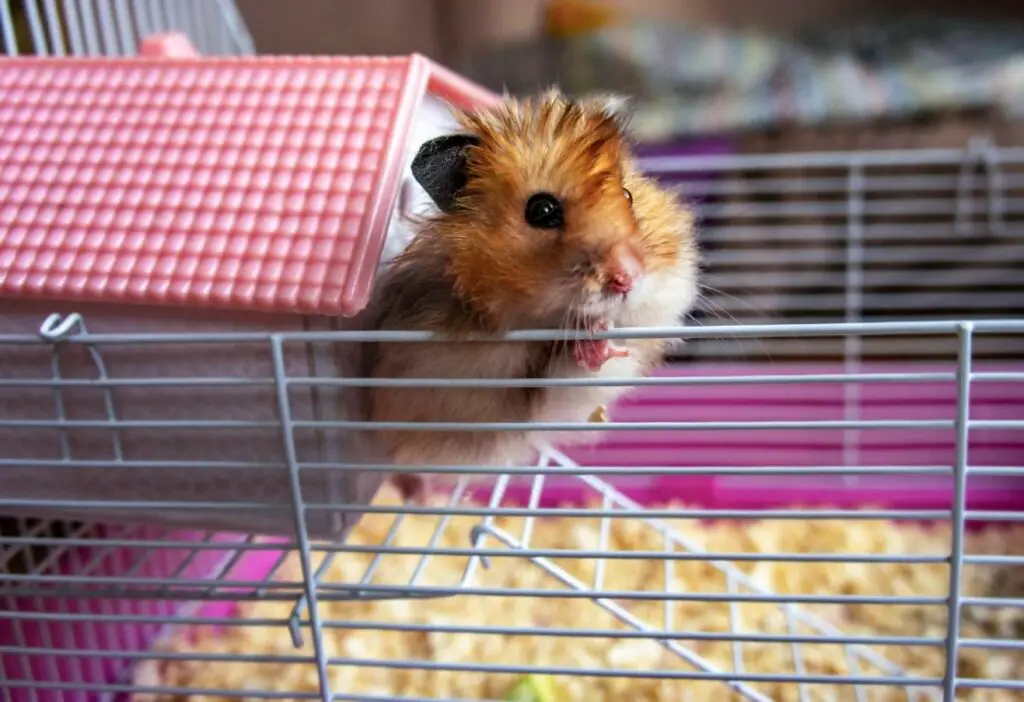Hamsters are popular pets all over the world. These furry critters are cute, cuddly, and have unique personalities that make them great companions. However, as a veterinarian, one question that I get asked a lot is whether hamsters are cannibals. In this blog post, I will explore this topic and provide information on why cannibalism is a concern in hamsters, which types of hamsters are more prone to cannibalism, the reasons for cannibalism in hamsters, how to prevent it, and the importance of early intervention to prevent cannibalism in hamsters.

What is cannibalism?
Cannibalism is the act of one animal consuming another animal of the same species. While it is a rare behavior in the animal kingdom, it does occur in some species, including hamsters.
Why is cannibalism a concern in hamsters?
Cannibalism is a concern in hamsters because it often leads to injury, illness, and death. Hamsters that are cannibalistic will attack and eat their cage mates, and this can be a gruesome and traumatic experience for all involved.
Types of hamsters
Which hamsters are more prone to cannibalism?
Syrian hamsters, also known as golden hamsters, are the most prone to cannibalism. These hamsters are territorial and solitary animals, and when placed with other hamsters, they are more likely to become aggressive and attack their cage mates. As such, they should always be housed alone.
Do all types of hamsters show cannibalistic behavior?
While Syrian hamsters are the most prone to cannibalism, other types of hamsters can also exhibit cannibalistic behavior. Dwarf hamsters, for example, can be cannibalistic if they are overcrowded or stressed.
Reasons for cannibalism in hamsters
Is cannibalism a natural behavior in hamsters?
Yes, cannibalism is a natural behavior in hamsters. In the wild, hamsters will fight intruders and eat them if they manage to kill them because it’s a free source of food for them. Hamsters even eat their own babies sometimes if they’re stressed or in a situation where they feel they cannot raise their babies safely.
What are the other factors that lead to cannibalism in hamsters?
Cannibalism in hamsters can also be caused by stress, overcrowding, lack of food and water, and inadequate shelter. It can also be triggered by the introduction of a new hamster to the group or by a change in the social dynamics.
How can you identify if your hamster is showing signs of cannibalism?
If you have dwarf hamsters that you keep together and you notice that your hamster is aggressive towards its cage mates, has injuries, or is missing fur or body parts, it may be exhibiting signs of cannibalism. You should also look out for unusual behavior, such as hoarding food or being overly aggressive towards humans, as this can be a sign of stress and may lead to cannibalistic behavior.
Prevention of cannibalism in hamsters
What can you do to prevent cannibalism in hamsters?
The best way to prevent cannibalism in hamsters is to keep them in separate cages, especially if you have Syrian hamsters this is a must. Two Syrian hamsters can never be kept in the same cage.
If you have dwarf hamsters that you do keep together, make sure that they have enough space, food, water, and shelter. You can also try introducing new hamsters to the group slowly and monitor their behavior closely.
Are there any dietary changes that can help prevent cannibalism?
While there are no specific dietary changes that can prevent cannibalism in hamsters, a well-balanced diet that meets their nutritional needs can help reduce stress and prevent the onset of cannibalistic behavior.
How can you ensure a safe and comfortable environment for your hamsters?
To ensure a safe and comfortable environment for your hamsters, provide them with a clean and spacious cage, plenty of bedding material, toys to play with, and areas to hide and sleep in. Keep the cage in a quiet and calm area of your home to reduce stress, and make sure that the temperature and humidity levels are appropriate for your hamsters.
Conclusion
Summary of the key takeaways
In summary, hamsters can exhibit cannibalistic behavior, and this can be dangerous and even deadly. Syrian hamsters are the most prone to cannibalism, but other types of hamsters can also exhibit this behavior under certain conditions. The reasons for cannibalism in hamsters include stress, overcrowding, and changes in social dynamics, among others.
The importance of early intervention in preventing cannibalism in hamsters
Early intervention is crucial in preventing cannibalism in hamsters. If you notice that your hamster is exhibiting signs of aggression or stress, it is important to take action immediately. Separating your hamsters into different cages and providing them with a safe and comfortable environment can help reduce the risk of cannibalistic behavior.
Final thoughts on the topic
As a veterinarian, I always advise pet owners to understand the behaviors and needs of their pets to ensure their health and well-being. If you are considering getting a hamster, make sure that you are prepared to meet their needs, provide them with a safe and comfortable environment, and monitor their behavior closely to avoid the onset of cannibalistic behavior.
- How Long Do American Eskimo Dogs Live? Important Factors and Care Tips - September 29, 2023
- Do American Bulldogs Need Grooming? Essential Tips and Care Guidelines - September 29, 2023
- Do Bengal Cats Enjoy Playing? Essential Tips for Keeping Them Active - September 29, 2023